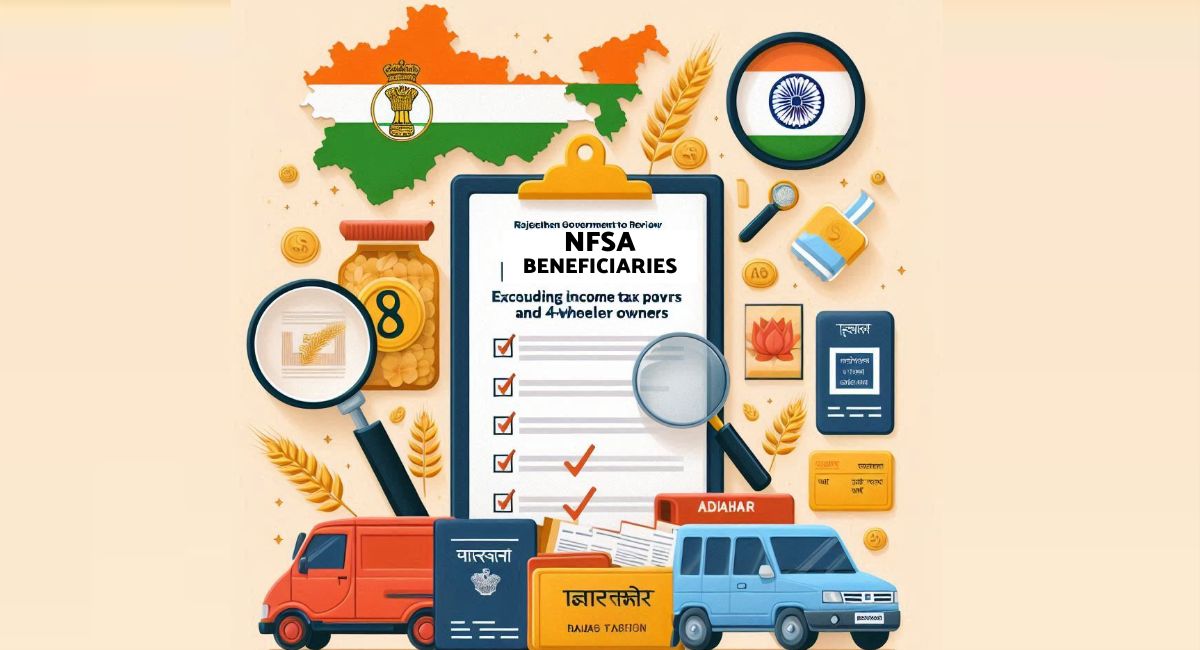In a significant administrative move, the Rajasthan government has announced a comprehensive review of the National Food Security Act (NFSA) beneficiaries. Over one crore families currently receiving free wheat under the NFSA are set to undergo scrutiny to ensure eligibility.
Sources within the department have indicated concerns about the presence of ineligible individuals on the beneficiary list. The state government has requested data from the Income Tax and Transport departments to address these issues, specifically targeting income taxpayers and owners of four-wheeler vehicles.
The review will involve cross-referencing the NFSA beneficiary list with Aadhaar numbers to identify discrepancies. Principal Secretary of Food, Civil Supplies, and Consumer Affairs, Bhaskar A. Sawant, conveyed in a letter that no income taxpayer or four-wheeler owner should be receiving benefits under the NFSA.
It is important to note that owners of tractors or other commercial vehicles used for livelihood purposes are excluded from this review. This review comes on the heels of the Rajasthan government’s decision to extend the LPG cylinder subsidy scheme, priced at Rs 450, to all NFSA beneficiaries.
Previously introduced by the Congress government, this scheme was aimed at around 77 lakh beneficiaries under the Ujjwala program and BPL families. The incumbent BJP government has expanded this scheme to include the entire NFSA beneficiary list, now comprising 1 crore 7 lakh 35,652 families, thereby increasing the number of beneficiaries by nearly 30 lakh.
This expansion is expected to place an additional financial burden on the state government. The review is also prompted by reports of duplicate and fraudulent entries in the NFSA list. Notably, around 81,000 government employees were found to be illegally benefiting from the scheme, receiving wheat at Rs 2 per kg two years ago.
As the review progresses, the Rajasthan government aims to rectify these issues and ensure that the benefits of the NFSA are equitably distributed to deserving families for their food security.

